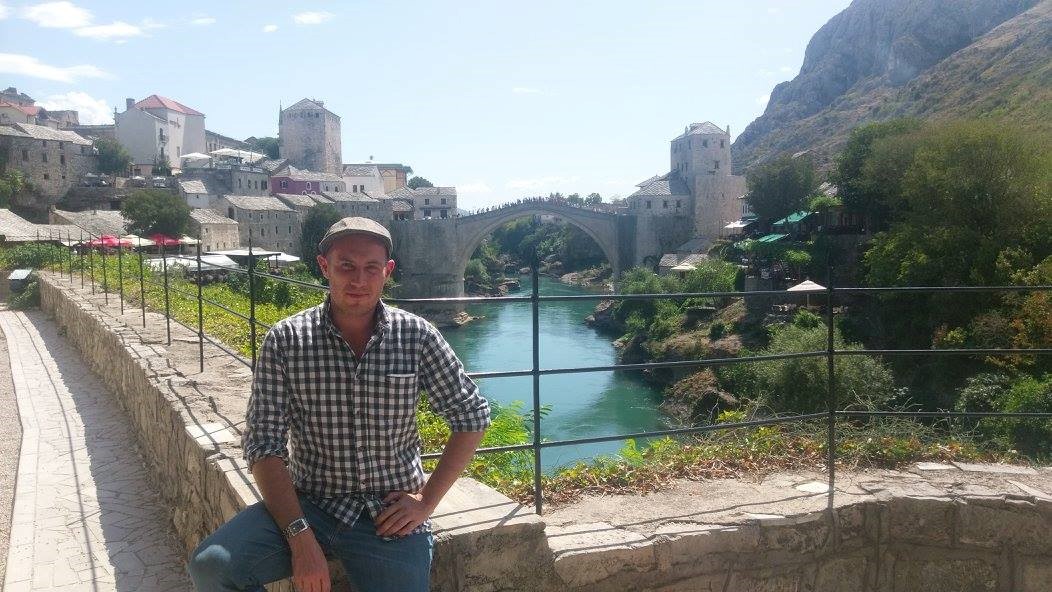I miss the energy of the POLIR student body and the enthusiasm of the staff. I miss the passionate seminar debates and the incredible range of views from people that have different identities and experiences to my own.
Many students have passed through Kent but what they up to now? In the After Kent series, we talk to Callum MacLean about his journey After Kent. Callum studied a BA in Conflict, Peace and Security and an MA in International Conflict Analysis, both at Kent between 2014-2018.
Why did you decide to continue your time at Kent and do MA with us?
I chose to study for both degrees at Kent for several reasons. I enjoyed my time as an undergraduate so much that I really wanted to stay another year and there was an impressive range of modules on offer that suited my interests. I had also appreciated the critical approach that the POLIR takes on issues, for example challenging the orthodox view of terrorism and state security. The loyalty discount on tuition fees for returning students didn’t hurt either.
What do you miss the most about studying Politics at Kent?
Aside from not paying Council Tax… I miss the energy of the POLIR student body and the enthusiasm of the staff. I miss the passionate seminar debates and the incredible range of views from people that have different identities and experiences to my own. I also miss the green of the campus and the range of opportunities available through sports clubs, societies, language classes and campus events.
What are you up to now?
I work as the Africa Department Officer at Conciliation Resources (CR), a peacebuilding international NGO. My duties are varied but include supporting our Africa programme teams with security plans, monitoring and evaluation, programme strategy, research and fundraising, among others. I’m relatively new to the role, having spent the previous two years with CR’s research and policy team, where I had the opportunity to lead a research project on engagement with armed groups and proscribed terrorist organisations. I also work informally for a risk analysis organisation, where I provide analysis of the security and political risks facing the Middle East.
How has studying Politics at Kent prepared you for the future/current position?
I had no idea what peacebuilding even was before studying at Kent! I learned about it as part of a first-year undergraduate module on conflict resolution and the idea of transforming conflict relationships really resonated with me. It even formed the basis of my MA research, in which I spent time in Israel and Palestine speaking to organisations who worked in this field. Aside from the knowledge I gained about conflict theory and resolution I also gained a lot of practical skills at Kent, such as presenting ideas, conducting research, and how to write concisely and informatively, which have been invaluable in my current work.
What advice would you give potential/current Politics students?
My advice can be summed up in a word – Speak! Speak to as many people as you can. Don’t be afraid to spend time with people who are different to you, it can be eye-opening and helps to shape your worldview. Speak in seminars. Ask questions, share experiences, respectfully challenge and help to create a dynamic learning environment. And finally, speak to your lecturers and seminar leaders. They are incredible sources of information and advice, you have common interests already and at the end of the day, they’re people too – no, really! Jokes aside, DO talk through your essay plans with the person who will mark them. It will help to both reassure you and to identify any pitfalls before you begin writing.
What do you plan to do in the future?
My ultimate aim is to combine my current roles into one. That is, I’m keen to continue with peacebuilding or similar, but would like to bring my focus back to the Middle East region. I’ve used the Covid lockdown to tune into MENA-focused webinars and to continue learning Arabic – an endeavour started through Kent’s ‘wild module’ option.
IIf you are a POLIR alumni and studied either an undergraduate, postgraduate or PhD degree with us and would like to share your story, contact us, we would love to hear from you!

